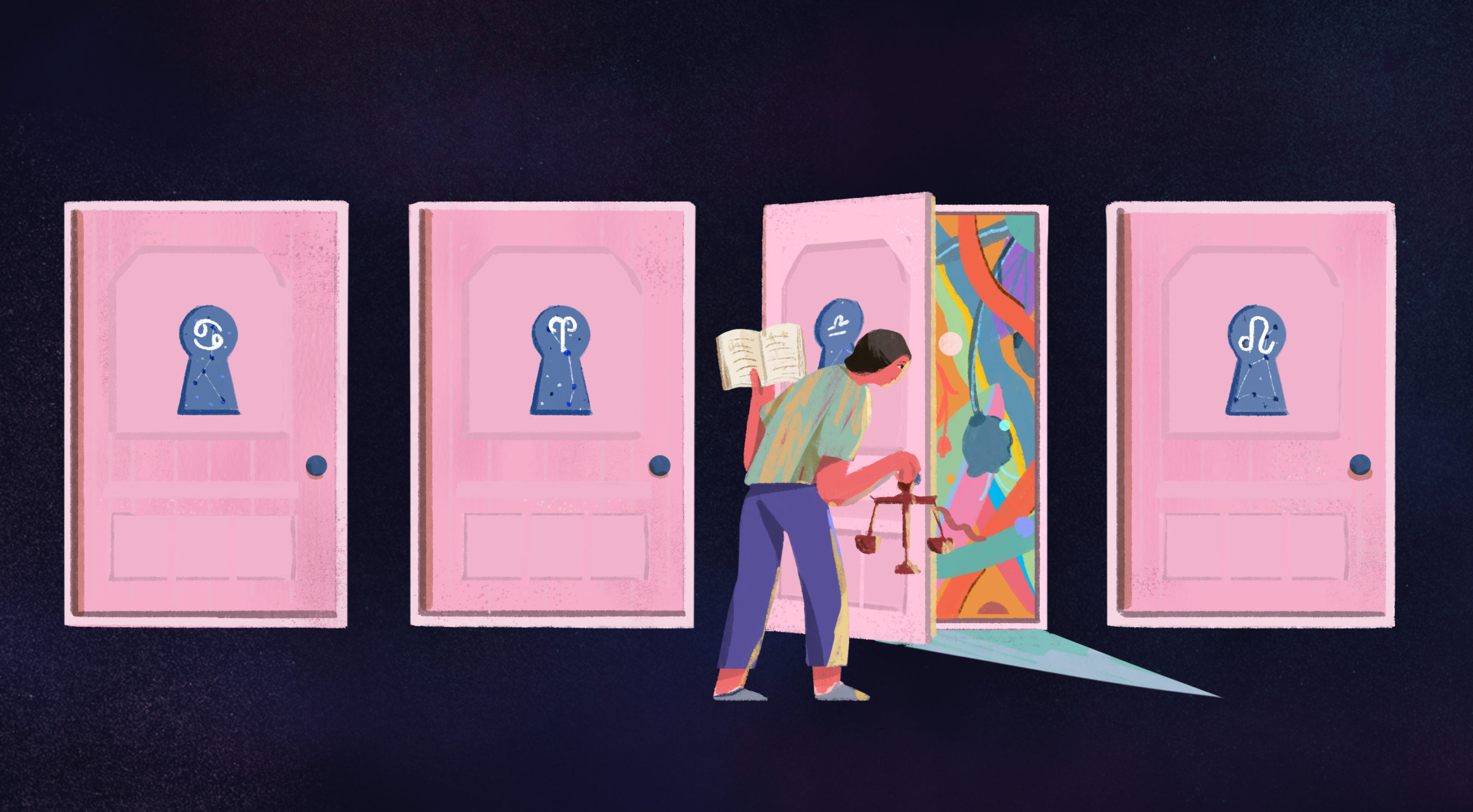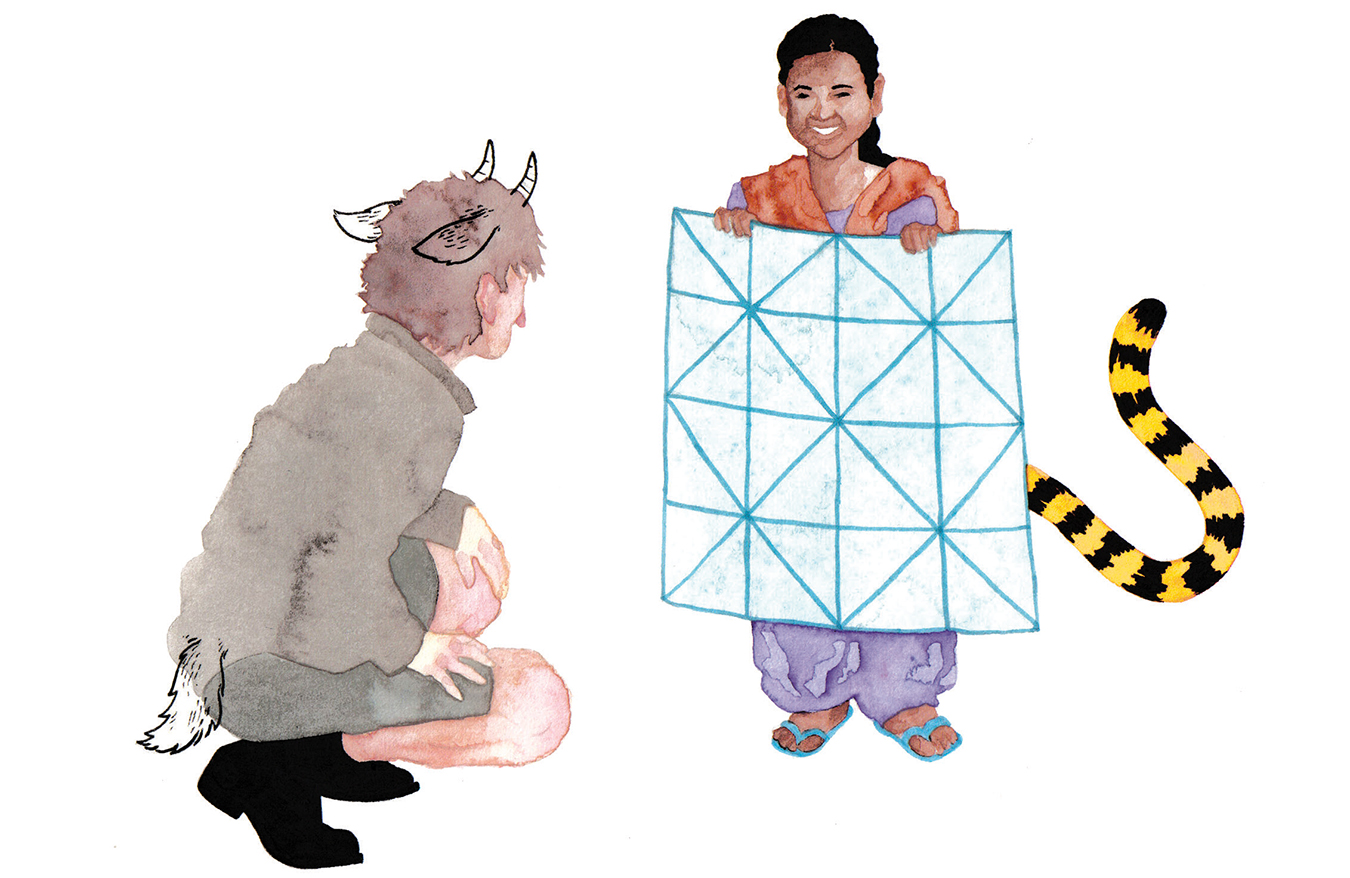The Age of Big Astrology
Sign of the times.

Jianan Liu / jiananliu.com This art work is copyrighted and may not be reproduced or distrubuted without consent of the author. Notice: Remvoing copyright notice is a crime
What is your purpose? What waits for you at the end of today, tomorrow, forever?
Questions like these have long been the stimulating points around which we congregate; we find companionship in communities of questioners, hoping that the answers we find will be satisfactory. And satisfactory answers have always been profitable.
These days, communities are diverse, organized religion is waning, and populations are thrown across the globe, making the Internet a new place to gather, a locus of identity formation, and the primary forum where questions can be asked and answered. In this place, personalization is everything, as people customize their individuality on screen.
The isolation of geography and language has been, in many ways, mitigated by the Internet. One could say that astrology has helped fill the void that the decline of traditional religions has left, especially in North America and Europe.
However, to say that astrology’s popularity has everything to do with modernization and the decline of organized religion would be disingenuous. Reading the stars can be traced to at least the advent of writing, and even before, as seen with Indigenous building practices in Australia and elsewhere.
We find companionship in communities of questioners, hoping that the answers we find will be satisfactory. And satisfactory answers have always been profitable.
The heavens are vast and open to interpretation, like books—two age-old vehicles for answers. And books have often featured astrology as a bedfellow. In Paradiso, Dante Alighieri, the famous verbal illustrator of the glorious and hellish answers to the question “where do we go?” writes “As, pricked out with less and greater lights, between the poles of the universe, the Milky Way so gleameth white as to set very sages questioning.” Which goes to show that stars themselves are a sort of media that inspires conversation.
This alignment of the mysteries of the stars and the joy of writing is present still; the protagonist of Drive Your Plow Over the Bones of the Dead, by recent Nobel Prizewinner, Olga Tokarczuk offers the reader a vision of her comfort in astrological beliefs, which are related to her environmentalist concerns, in contrast to the corrupt church and government. Tokarczuk aligns the interpretative practice of the small-town protagonist against the nefarious conspiracies of powerful organizations. But astrology can also be disseminated on a large scale.
Like the consolidation of big publishing, astrology—once restricted to consultants and backroom readers—first appeared in newspapers and is now an incredibly profitable form of online media.
Writers for the New York Times have called astrology’s return “a compelling content business as much as a traditional spiritual practice.” And have pointed out the interest of venture capitalists in online astrology, tarot, and horoscope apps.
At the forefront of the unique intersection of written content, astrology, and the Internet, are people like Josh Jaffe, the general manager of Horoscopes.com, Inc. The sites and apps under the Horoscope.com, Inc. label include Horoscope.com, Astrology.com, and SunSigns.com. Jaffe says that the combined web, social media, and email traffic for the group of websites reaches as many as 20 million people in a month.
Anyone who has ever typed “astrology” into Google has surely come across one of these sites. Jaffe describes each one as offering different depths of information, with some providing personalized chart and tarot readings.
The structure of each website is similar to a magazine, with an editorial board producing content. Individual content producers run columns or, for a price, give personalized readings. In Jaffe’s eyes, the first thing that people ask when looking for content is, “Do I feel some sort of connection with the author of the content?” Obviously, many people do.
With such a massive following, it’s hard not to be suspicions of any company’s data practices and influences. Popular astrologers and the companies that host them dictate norms, and anyone who has that one friend constantly posting about how their zodiac sign perfectly fitting their personality or how terrible they feel during mercury retrograde can find those norms recognizable if not relatable. People give credence to their advice, so shouldn’t we be concerned about any single company facilitating its dissemination?
Having said that, the dissemination does not seem very centralized, especially considering the diversity of editorial staff amongst the sites. When asked how Internet astrology interacts with homegrown astrologers, Jaffe says that the role of the sites is that of facilitator, and some who better resemble a traditional astrologer seem to agree. Kelly Benson, a local Vancouver astrologer, says, “Truthfully these big sites have done a lot to help make astrology more mainstream,” which helps small businesses.
From this perspective, big astrology sites function like a forum where people curious about life, relationships, family, and all other sorts of things can find those who are trained to interpret the celestial signs and write about them; Jaffe oversees 50 different horoscope topics and says that many of the astrologists on staff are also professional journalists.
One touchpoint of the Horoscope.com, Inc sites is the hyper-specific content. This model flies in the face of one of the most stalwart rebuffs of astrology: the Barnum Effect (also known as the Forer Effect). The short description of the Barnum Effect, according to Brittanica, is “the phenomenon that occurs when individuals believe that personality descriptions apply specifically to them (more so than to other people), despite the fact that the description is actually filled with information that applies to everyone.” Interpretations are usually what the person wants to hear, especially when money and repeat customers are involved.
Like other forms of online content, is astrology telling us exactly what we want to hear based on our codified digital preferences? Digital churches with hyper-specialized communities swiping and typing in self-affirming circles?
The hyper specificity of tailored online content makes writing horoscopes a bit more difficult. Instead of stock phrases for thousands of people reading the same horoscope, users are presented with something so specific that it may not realistically apply to that many people. Only with the massive content-creating engines of the information age is such a project possible: a personalized gospel for each individual aspect of each individual’s life. “Reach out to the touch screen,” the lyrics to “Personal Jesus” should have gone.
Many explanations of the Barnum Effect use computer-generated algorithms as another example of a generalized confirmation bias. Which makes sense, especially with the uncanny way companies like Google and Facebook have geared their algorithms toward showing us what they think we want to see. Anyone who has ever seen a pair of boots they clicked on eerily appear on the side of their screen an hour later can attest.
The business of producing content online revolves around being able to anticipate the questions that the billions of people who use the Internet will ask. Echo chambers exist so that you can bounce around on the Net all day and never leave your comfort zone. Like other forms of online content, is astrology telling us exactly what we want to hear based on our codified digital preferences? Digital churches with hyper-specialized communities swiping and typing in self-affirming circles?
The question of astrology’s validity as fact is not worth debating—belief rarely is. No one wants to be told what not to believe. And that’s fine. At the end of the day, everyone wants to ask questions, and everyone needs the comfort of thinking that there are answers. But millions of people receiving advice from horoscopes has an effect on the decisions being made, so we need to think about the sources and how our decisions online are shaping this content—it’s all connected.
Perhaps soon, everyone will have their own individual news source giving them the answers to the world’s problems that best suit what they want to hear (we are already close). Until then, it is important that we keep thinking critically and understand that it is the questions we ask (and not the signs) that create lasting bonds and generate the poetic hope that has kept us going.
________
Never miss a story. Sign up for NUVO’s weekly newsletter here.




